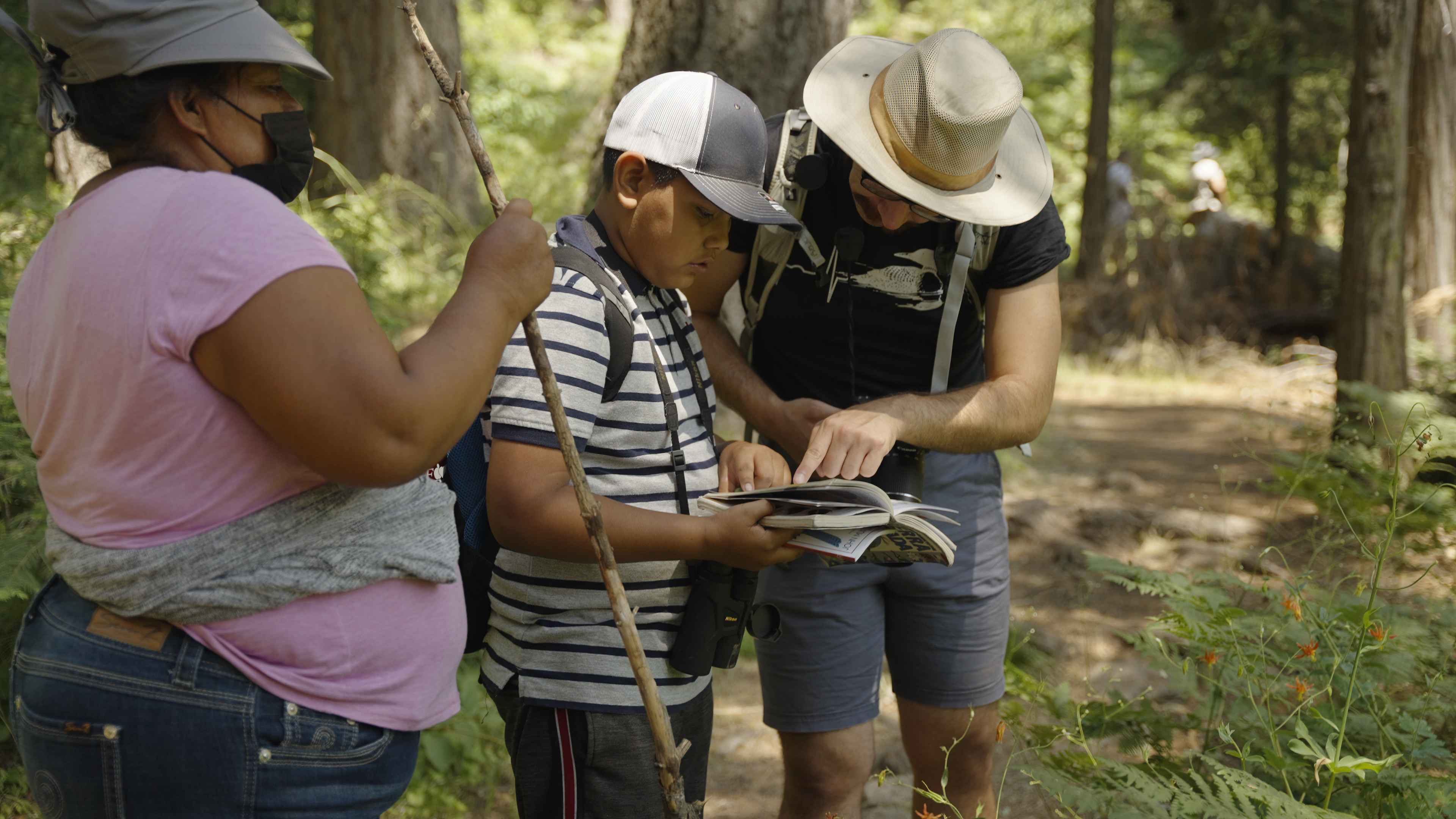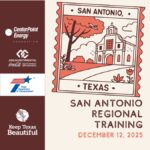by Karla Camacho, KTB Communications Coordinator
Cover Photo from Latinos Outdoors
Environmental Justice and the Hispanic and Latino Community
National Hispanic Heritage Month is here! From September 15 to October 15, the United States celebrates the contributions and influence of Latinos on the history, culture, and achievements of the country. This month-long celebration offers a valuable opportunity to foster cross-cultural understanding and appreciation, break down stereotypes, and promote inclusivity as the US population becomes more diverse.
Latinos have made and continue to make a significant impact in shaping our nation. They serve as organizers, government officials, public servants, and community leaders who champion the fight for environmental justice. Through these celebrations, we can inspire younger generations and bring communities together in solidarity.
We must acknowledge that many Latino communities face the repercussions of the climate crisis, which is a significant issue. Most Latinos in the United States consider global climate change an important concern, with a majority stating that it affects their local community to some extent. According to research conducted by the Pew Charitable Trust, eight in ten Latinos in the United States consider addressing global climate change to be either their top concern or one of several important concerns, with 39% ranking it as their top personal concern. This indicates that climate change is not just a global, distant concern for Latinos, as about seven in ten Latino adults believe that it is affecting their local community.
Latino Environmental Advocates
Including Latino voices in environmental conversations can encourage other Latino individuals to participate while also inspiring their neighbors to acknowledge their experiences with environmental discrimination. This is part of a greater movement towards a more just and equitable society. As we celebrate National Hispanic Heritage Month, let’s take a moment to recognize and appreciate the contributions of Latinos to our society and environment.

Dolores Huerta is closely connected to the rise of the environmental justice movement. She is considered one of the most influential Latina figures of the 20th century, due to her tireless work as a community organizer, labor activist, civil rights leader, and advocate for social, economic, and environmental justice. Dolores Huerta tirelessly fought for the rights of farm workers, women, and other marginalized groups by leading collective actions such as boycotts and strikes, and by initiating social justice programs and community organizing. She is the co-founder of the National Farmworkers Association, which later merged with the Agricultural Workers Organizing Committee to form the United Farm Workers of America (UFW). During her time at UFW, Dolores played a pivotal role in advocating for several policies related to farm laborers and immigration. In recognition of her outstanding contributions to society, Dolores was awarded the Nation/Puffin Prize for Creative Citizenship in 2002, which carried a cash prize of $100,000. She utilized the prize money to establish the Dolores Huerta Foundation (DHF), which aims to train individuals to become community advocates and organizers. DHF is committed to developing leaders by providing hands-on civic-engagement training and opportunities, with a specific focus on organization building through canvassing, tabling, and phone banking, emphasizing voter registration, participation in the electoral process, and promoting awareness of legislative bills that impact local communities.
When asked to define climate justice, Dolores states, “To have a planet that is sustainable for life. And that the work people are doing in their occupations fits into that framework. Everything that we have to do is to try to keep our climate one that will sustain life on planet Earth—and not only human life but also animal life and plant species.”

Elizabeth Yeampierre is a Puerto Rican attorney, environmentalist, and climate justice leader. She holds a BA from Fordham University and a law degree from Northeastern University. Elizabeth is the co-chair of the Climate Justice Alliance and the Executive Director of UPROSE, Brooklyn’s oldest Latino community-based organization. Her vision for an inter-generational, multi-cultural, and community-led organization is the driving force behind UPROSE’s success. Elizabeth was the first Latina Chair of the US EPA National Environmental Justice Advisory Council. Her work has made a significant impact on communities affected by environmental injustices and continues to inspire and lead towards a sustainable future.

Luis Villa is the Executive Director of Latinos Outdoors, a non-profit organization that supports and organizes volunteers leading local conservation and outdoor education projects across the country. The organization is completely Latino-led and is committed to expanding and amplifying the Latino experience in the outdoors. They provide leadership, mentorship, and professional opportunities while also serving as a platform for sharing cultural connections and narratives that are often overlooked by the traditional outdoor movement. As the Executive Director of Latinos Outdoors, Luis aims to blend social and environmental justice with the conservation of both human and natural resources. He seeks to celebrate diversity in all its forms, including ecosystems, urban communities, public parks, neighborhoods, and culture.

Ángel Peña serves as the Executive Director of Nuestra Tierra Conservation Project. The organization aims to provide access to the outdoors for members of border communities while ensuring that they have a meaningful impact on the management of public lands and waters. In just three years since becoming a 501(c)(3) nonprofit, Nuestra Tierra and its partners have helped to establish the New Mexico Outdoor Equity Fund, a $3 million state fund that offers grants to outdoor access programs catering to low-income and underserved youth. This program is the first of its kind in the country. At the federal level, the Nuestra Tierra team works collaboratively with the Monumental SHIFT coalition, which includes diverse racial and ethnic groups. They strive to create new national monuments that accurately represent and honor lands that are sacred to the communities they belong to, such as the beloved Castner Range.

Diandra Marizet is a Mexican-American climate activist from Texas. She holds a degree from Texas A&M University and currently serves as the Executive Director of Intersectional Environmentalist, a non-profit organization that advocates for intersectionality in the climate justice movement. The organization provides educational resources, action steps, online communities, and more. Diandra is a unique kind of environmental advocate because she uses social media to raise awareness about the effects of climate change on communities of color. She describes Intersectional Environmentalism as a space where unheard voices can be amplified and their ancestry, cultural wisdom, and joy can be celebrated.
These are only a few of many inspiring Latino leaders. This month is an excellent opportunity to spotlight the unique voices and experiences of Latinos and recognize their history, journeys, and achievements toward environmental justice. Hispanic Heritage Month also reminds us that representation matters and encourages us to recognize and celebrate the history and journeys of Latinos in the United States.


